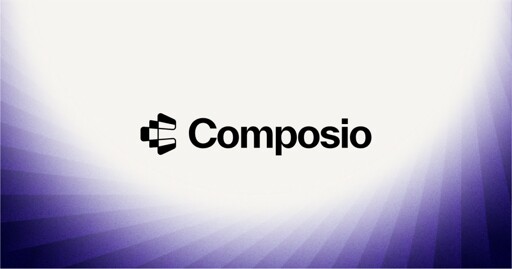Say Hello to the World's Largest Hard Drive, a Massive 36TB Seagate
-
Is that just observational, or did you keep track? Backblaze does track their failures, and publishes their data: https://www.backblaze.com/blog/backblaze-drive-stats-for-q1-2025/
And they do have more Seagate failures than other brands, but that's because they have more Seagates than other brands. Seagate is generally pretty good value for the money.
-
That's roughly what I have now, and I only have about 200gb left, so I kind of wish I could get a little more right now. This is across 7 drives. I really hope storing data becomes faster and cheaper in the future because as it keeps growing over the past few decades, it gets longer and longer to replace and move this much data...
Well, it does cost less and less every year. I bought two 8TB drives for $300 each or so, and today a 24TB drive is about that much.
-
This post did not contain any content.
Why did they make an enterprise grade drive SMR? I’m out.

-
Well, largest this week. And
Yeah, $800 isn’t a small chunk of change, but for a hard drive of this capacity, it’s monumentally cheap.
Nah, a 24TB is $300 and some 20TB's are even lower $ per TB.
Depends on your use case. The linked drive according to seagate’s spec sheet is only rated for about ~6.5 power-on hours per day(2400 per year). So if just in your desktop for storage then sure. In an always (or mostly) on NAS then I’d find a different drive. It’ll work fine but expect higher failure rates for that use.
-
SSD ≠ HDD
Never change pedantic Internet, never change!
-
And they do have more Seagate failures than other brands, but that's because they have more Seagates than other brands. Seagate is generally pretty good value for the money.
IMO, its not a brand issue. Its a seller/batch/brand issue. Hard drives are sensitive to vibration, and if you buy multiple drives from the same place, at the same time, and all the same brand and model, you might be setting yourself up for a bad experience if someone accidentally slammed those boxes around earlier in their life.
I highly recommend everyone buy their drives from different sellers, at different times, spread out over various models from different brands. This helps eliminate the bad batch issue.
-
I wanna fuck this HDD. To have that much storage on one drive when I currently have ~30TB shared between 20 drives makes me very erect.
Average Lemmy user
-
IMO, its not a brand issue. Its a seller/batch/brand issue. Hard drives are sensitive to vibration, and if you buy multiple drives from the same place, at the same time, and all the same brand and model, you might be setting yourself up for a bad experience if someone accidentally slammed those boxes around earlier in their life.
I highly recommend everyone buy their drives from different sellers, at different times, spread out over various models from different brands. This helps eliminate the bad batch issue.
Yeah. In the Backblaze data, you can see that annualized failure rates vary significantly by drive model within the same manufacturer.
But if maintaining drive diversity isn't your thing, just buy a cold spare and swap it out when a failure inevitably happens (and then replace the spare).
-
Why did they make an enterprise grade drive SMR? I’m out.

For affordable set it and forget it cold storage, this is incredible. For anything actively being touched, yeah definitely a pass.
-
Why did they make an enterprise grade drive SMR? I’m out.

Because they simply cannot do it otherwise.
-
Refurbished drives sound scary. Any data to point towards that not being a problem?
I would absolutely not use refurbs personally. As part of the refurb process they wipe the SMART data which means you have zero power-on hours listed, zero errors, rewrite-count, etc - absolutely no idea what their previous life was.
-
I would absolutely not use refurbs personally. As part of the refurb process they wipe the SMART data which means you have zero power-on hours listed, zero errors, rewrite-count, etc - absolutely no idea what their previous life was.
Thanks! It seems too risky for something like a hard drive.
-
Because they simply cannot do it otherwise.
That’s fine…they don’t need to release it under their Exos line of enterprise drives. SMR don’t do well in raid arrays especially not highly utilized ones. They require idle time to cleanup and the rebuild times are horrendous.
-
I would absolutely not use refurbs personally. As part of the refurb process they wipe the SMART data which means you have zero power-on hours listed, zero errors, rewrite-count, etc - absolutely no idea what their previous life was.
If you've got a RAID array with 1 or 2 parity then manufacturer recertified drives are fine; those are typically drives that just aged out before being deployed, or were traded in when a large array upgraded.
If you're really paranoid you should be mixing mfg dates anyway, so keep some factory new and then add the recerts so the drive pools have a healthy split.
-
Average Lemmy user
Ain't nothing about me is average except for the size of my cock.
-
This post did not contain any content.
with this I can store at least 3 modern "AAA" games
-
Out of the roughly 20 drives I've bought over the last decade or so, the only two failures were Seagate and they only made up five of the drives purchased. The other 15 are WD and all have been great (knock on wood).
I've had the same experience. The first HDD that failed on me was a Barricuda 7200.11 with the infamous firmware self-brick issue, and a second 7200.11 that just died slowly from bad sectors.
From then on I only bought WD, I have a Caviar Black 1TB from oh, 2009-ish that's still in service, though it's finally starting to concern me with it's higher temperature readings, probably the motor bearings going.
After that I've got a few of the WD RE4 1TBs still running like new, and 6 various other WD Gold series drives, all running happily.The only WD failure I've had was from improper shipping, when TigerDirect (rip) didn't pack the drive correctly, and the carrier football tossed the thing at my porch, it was losing sectors as soon as it first started, but the RMA drive that replaced it is still running in a server fine.
-
In my experience, not all Seagates will fail but most HDD's that fail will be Seagates.
Because Seagate sell the most drives and all drives fail?
-
Yeah. In the Backblaze data, you can see that annualized failure rates vary significantly by drive model within the same manufacturer.
But if maintaining drive diversity isn't your thing, just buy a cold spare and swap it out when a failure inevitably happens (and then replace the spare).
The problem with same batch drives is failing together, potentially beyond your ability to recover with replacement drives.
-
Because Seagate sell the most drives and all drives fail?
The thing is I'm a data hoarder who buys lots of HDD's; both new and used. I have only bought a few Seagates. It's always the Seagates that are fucked. I had a Toshiba and Western Digital fail on me but I have had 5 Seagates fail on me. Could be a coincidence, sure but the brand I have bought the fewest of had the most failures. I recognize this is not scientific in any way. I recently bought a brand new 8TB Seagate Barracuda and its still going strong. I hope if lasts a good while. My oldest drive is a 1TB Hitachi (RIP) from 2008. I can't wait for 8TB SSD's to become cheaper.






